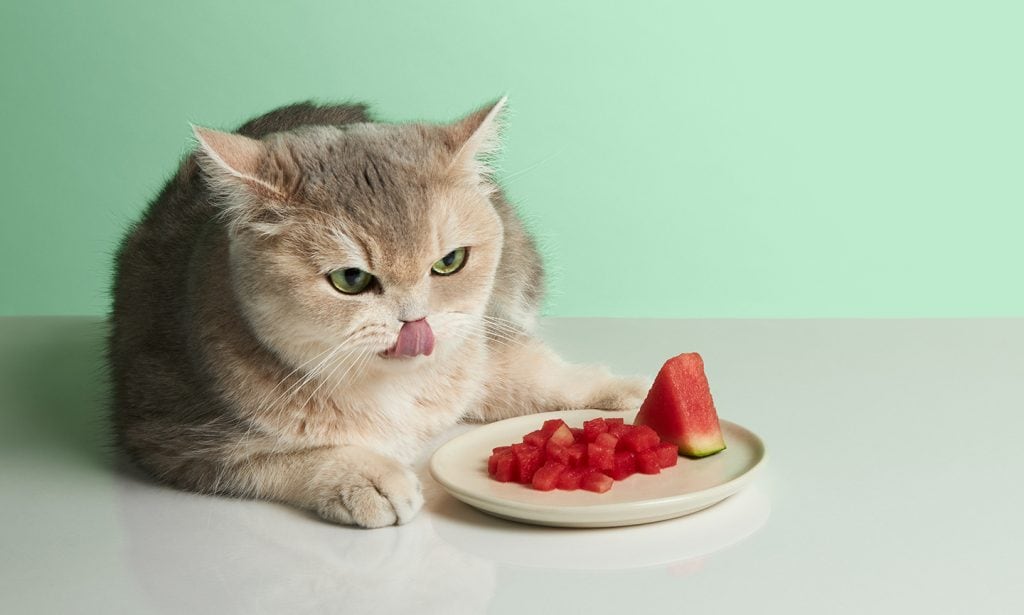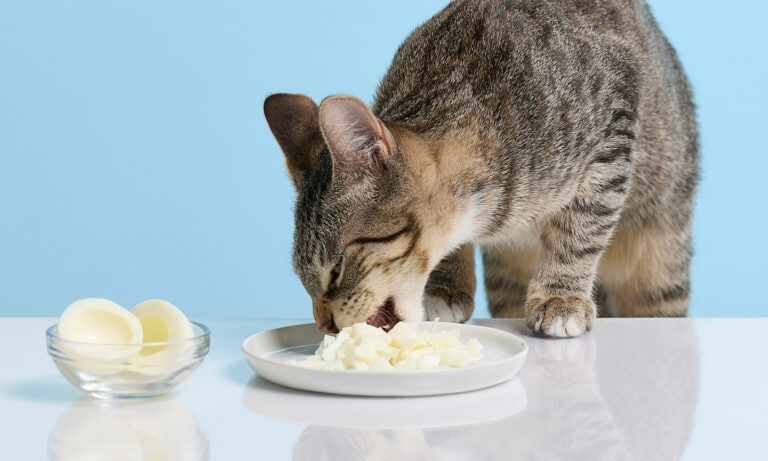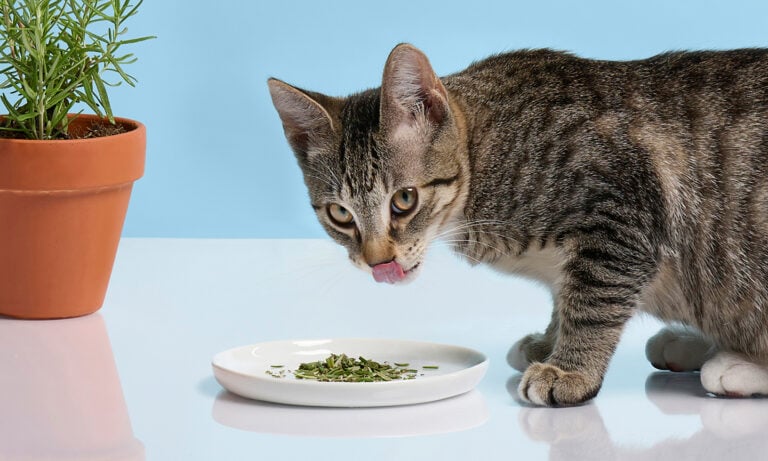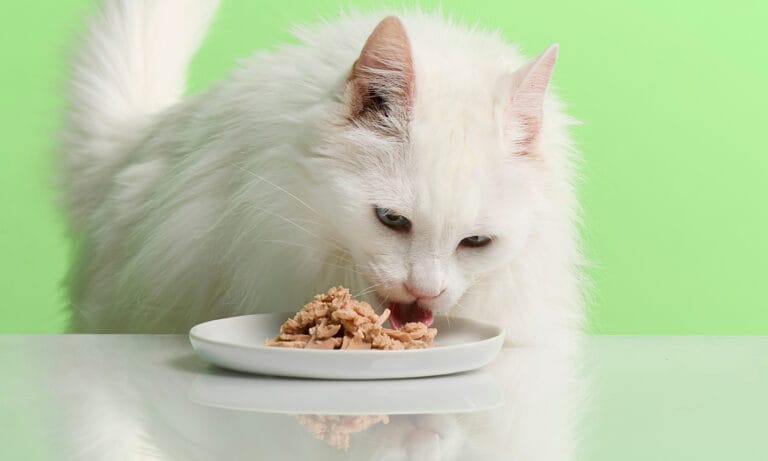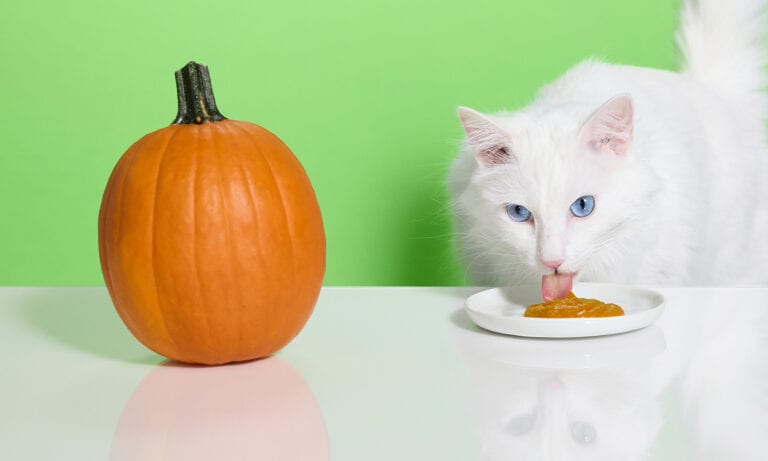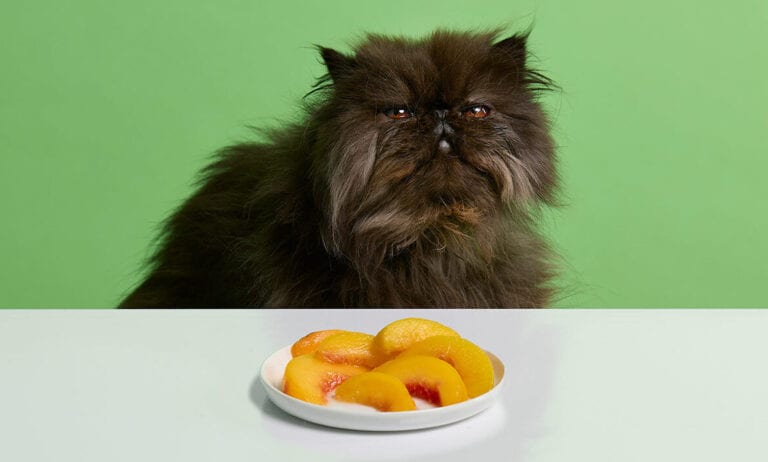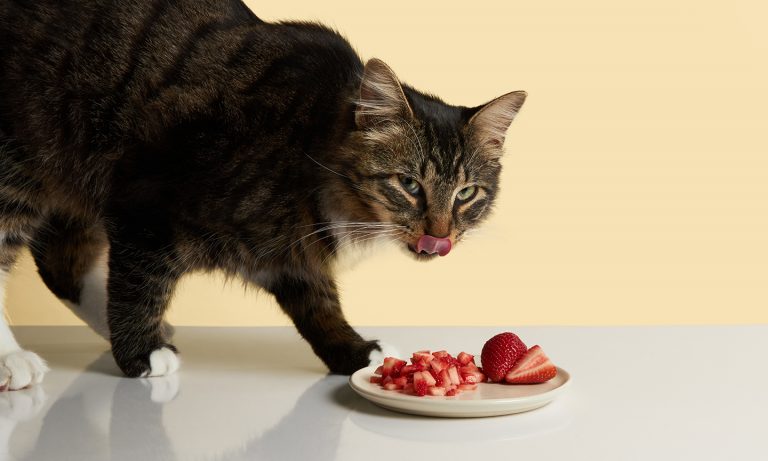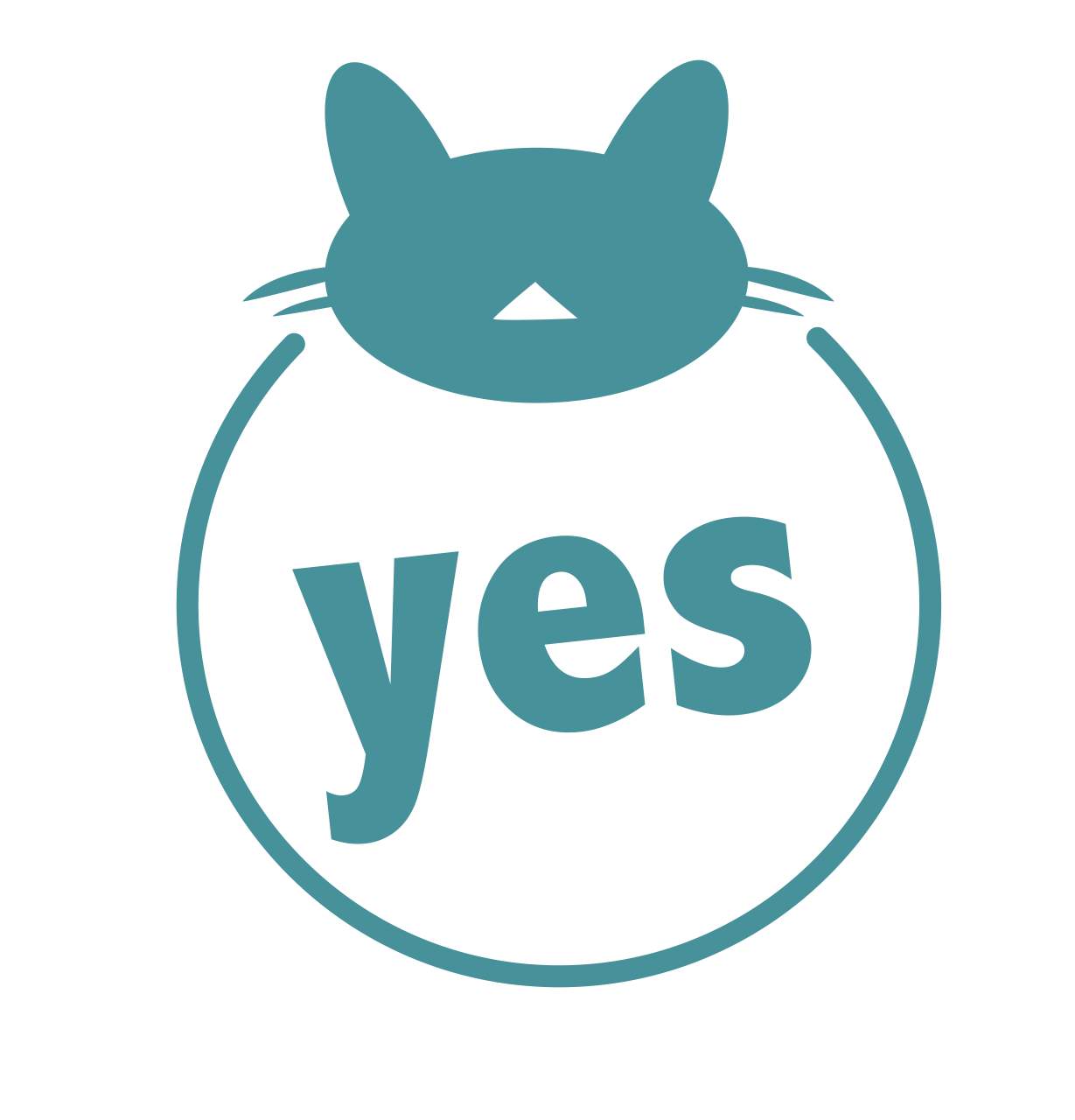
Click the buttons to jump to each section:
FAQs About Cats and Watermelon
Q:Is watermelon good for cats?
A:As a daily treat, watermelon is not especially good for cats for the following reasons:
- Cats don’t need carbohydrates and might not process them well, says Dr. Sarah Wooten, DVM, CVJ, based in Silverthorne, Colorado. If they eat too much watermelon, the carbs combined with the sugar can cause gastrointestinal issues such as upset stomach, or diarrhea.
- Cats with health problems (like diabetes) could have unfavorable results, “including issues with their blood sugar,” says Dr. Wooten.
But wait! All is not lost for your furry feline friend. In some circumstances, watermelon may be just what the doctor ordered, says Dr. Rachel Barrack, DVM, owner of New York City-based veterinary practice Animal Acupuncture. Under direction from your vet, here’s when watermelon just might be considered a healthy treat:
- To promote urination and clear heat and inflammation.
- To help maintain hydration: Watermelon has lots of electrolytes and a high water content, so it can aid in hydration on a hot day (it should never replace water however).
Q:Do cats enjoy watermelon? Do cats have a sweet tooth?
A:Some cats enjoy watermelon, but no, cats don’t have a sweet tooth. “To be perfectly honest, I’m not sure whether or not they really like it,” says Dr. Wooten. “They don’t enjoy sweet tastes much,” adds Dr. Barrack. The fact is, felines are programmed genetically not to taste sweets (which could be a good thing since that leaves more of the good stuff for you).
If you have a cat who loves watermelon, it probably isn’t the taste they’re drawn to but instead the refreshing moisture (and perhaps the mushy quality as well), says Dr. Wooten.
Q:Can cats eat watermelon seeds?
A:Cats should not eat watermelon seeds because…
- Watermelon seeds can be a choking hazard.
- Watermelon seeds contain cyanide, which is toxic to cats, says Dr. Barrack, adding that they should always be removed from the flesh before you serve it. A few pale, soft seeds (which may be found in seedless varieties) are typically fine, but pet parents may want to play it safe and remove them whenever offering a watermelon treat.
Q:What is the best watermelon variety for cats?
A:Paws down, the best variety for cats is seedless watermelon. The occasional thin, pale seed from this variety shouldn’t cause harm.
Q:What fruits are toxic to cats?
A:The following fruits are considered unsafe for cats and could lead to negative reactions:
- Citrus fruits (such as oranges, tangerines, lemons, grapefruit, limes and the like)
- Cherries
- Grapes
- Raisins
- Avocados
Q:Will watermelon give a cat a stomachache?
A:Watermelon can certainly give some cats a stomachache. (Sorry, furry ones!) Here’s why:
- Fruit isn’t a natural part of the feline diet.
- Because the rind is difficult for them to chew, it can be hard on cats’ digestive systems and may also cause choking.
Cats with health issues can be prone to tummy discomfort.
Q:Can watermelon cause diarrhea in cats?
A:Yes, watermelon can cause diarrhea in cats. Here’s when:
- If it’s ingested in large quantities.
- If it doesn’t agree with them: Since they’re obligate carnivores, some cats may have trouble processing the carbohydrates and sugars in watermelon.
- If your pet has health issues, like diabetes, even a small amount of watermelon can make them ill.
Benefits of Feeding Cats Watermelon
Watermelon isn’t toxic to cats, and it has plenty of minerals and vitamins. Healthy cats should be fine if they sometimes indulge in small pieces of seedless watermelon without the watermelon rind, says Dr. Wooten.
Here are the nutritional benefits of watermelon for cats:
- It’s high in vitamins and minerals. It’s got vitamins A, B1, B5 and C, as well as potassium and magnesium.
- It’s low in calories. It has about 1 calorie per teaspoon, which fits right in with the good ‘ole 10 percent rule: “Only 5 to 10 percent of your pet’s daily caloric intake should consist of cat treats,” says Dr. Barrack. And this is great news for those watermelon-loving felines out there, because if a cat’s diet allows for 200 calories a day, 2 teaspoons of watermelon make up only 1 percent of their daily intake.
- It’s hydrating. Watermelon’s high water content means it can aid in hydration in summer months (just never substitute it in place of plain old water). “I think the main health benefit, if you feed watermelon to cats, is that it’s high in moisture,” says Dr. Wooten.
- It has less sugar than some other fruits. “Less sugar (10 grams per cup) makes it a more suitable treat than some other fruits,” says Dr. Wooten. For comparison, mangoes have 23 grams of sugar per cup and pears have 14 grams of sugar per cup.
- It can be helpful for medical issues. “Watermelon is of benefit to promote urination and clear heat and inflammation in the body,” says Dr. Barrack, whose veterinary practice combines western and eastern medicine, “and from a traditional Chinese veterinary medicine perspective, food is medicine and should always be utilized as such.” Dr. Barrack adds that, “from a western veterinary medicine perspective, watermelon is high in electrolytes and thus excellent for maintaining hydration."
Downsides of Feeding Cats Watermelon
Watermelon isn’t the ideal cat food for your feline friend, so don’t feed it to them regularly, says Dr. Wooten.
Here are the downside of watermelon for cats:
- The vitamin and mineral nutritional benefit is minimal. Sure, cats may get something out of nutrients, like vitamin C or potassium, but because carbs aren’t needed for their wellbeing, cats can’t get a whole lot of bang for their buck in terms of health benefits from fruits.
- Watermelon isn’t part of a cat’s innate diet. Cats are obligate carnivores (meat eaters), and their bodies just weren’t designed to process carbs well. “Cats and carbs aren’t an ideal match,” says Dr. Wooten.
- Watermelon can cause tummy troubles. “Since it’s not part of their regular food requirement, watermelon, especially if they eat too much of it, can run wild with their digestive systems. You might see issues such as stomach upset or diarrhea,” notes Dr. Barrack. If that’s the case with your cat, then yep, even a small amount can lead to dreaded digestive distress.
- The sugar content may have adverse outcomes. Watermelon may have less sugar than some other fruits, but less sugar isn’t the same as zero sugar. That means our plumper purr babies could see their obesity worsen. That’s why diabetic cats or those that are obese should never be offered watermelon even as an infrequent bite, says Dr. Barrack.
- A health condition can stand in the way. A cat with a health condition (particularly diabetes) should steer clear. These cats can’t handle sugar fluctuations well, “so the sugar in watermelon could have a negative effect on their blood sugar,” says Dr. Wooten.
- Watermelon seeds can choke cats. “Plus, they contain cyanide, which is toxic to kitties,” says Dr. Barrack.
How to Feed Watermelon to Cats
Let’s face it, all cats are different. One may be able to eat small pieces of watermelon now and then and be a-OK, whereas another might get queasy immediately. If you notice any symptoms, stop feeding your critter watermelon. But even if your kitty has no unpleasant repercussions, keep servings small and intermittent.
Here are some tips for serving watermelon to cats:
- Never feed to diabetic cats or overweight felines, says Dr. Wooten. Because of the sugar content, these cats should not be given watermelon, even occasionally, adds Dr. Barrack.
- Serve watermelon as a treat in moderation. If your cat seems to enjoy it, portion out two to three bite-sized pieces, says Dr. Wooten. “You can cut a 1-inch-by-1-inch square, chop it up into little cat-bite sized pieces, and offer it once or twice a week.”
- Pick a fresh watermelon and rinse it before cutting. Remove all the seeds and then divvy up the flesh for your cat to taste.
- Listen to your cat. If your cat turns tail and walks away from their watermelon tidbit, don’t force it. They’re telling you this fruit isn’t for them.
- Introduce watermelon by itself. “It’s always best to phase in new foods one at a time,” says Dr. Wooten. “That way you can figure out the cause, if problems arise.” If you notice signs of gastrointestinal upset, diarrhea or even constipation, no more watermelon for them. On the other hand, if your cat loves their watermelon refreshment and has no yucky reactions, it's fine to feed it once in a while.
- Don’t give your cat seeds or watermelon rind. Both can be choking hazards, and the seeds contain cyanide, which is toxic to feline friends.
- Follow the 10 percent rule. Whenever you give a watermelon snack to your cat, or any other treats, make sure it doesn’t exceed 10 percent of their total daily diet. Talk to your vet about your kitty’s daily calorie needs, and try this handy calculator from the Pet Nutrition Alliance.
What Other Fruits Can Cats Eat?
Share:
